Razor Blades (1968)
ジャンル : ドラマ
上映時間 : 25分
演出 : Paul Sharits
シノプシス
In Razor Blades, Paul SHARITS consciously challenges our eyes, ears and minds to withstand a barrage of high powered and often contradictory stimuli. In a careful juxtaposition and fusion of these elements on different parts of our being, usually occurring simultaneously, we feel at times hypnotised and re-educated by some potent and mysterious force.

Mia recounts her most intimate confessions, uncensored, in her first approach to a totally new world of domination and submission.

A documentary filmmaker interviews the now-famous Trevor Slattery from behind bars.

After discovering her mother’s dead body, Luz tries to protect her younger sister, Catalina, from the harmful reality by using fantasy and games.
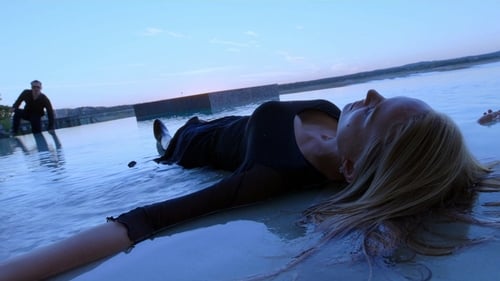
ルーニー・マーラ、ライアン・ゴズリング、ナタリー・ポートマンら豪華キャストが集結した、破滅的でエモーショナルなラヴ・ストーリー。青春を引きずる大人たちが、絶望と孤独の中で人生の輝きを見出す姿を描く。
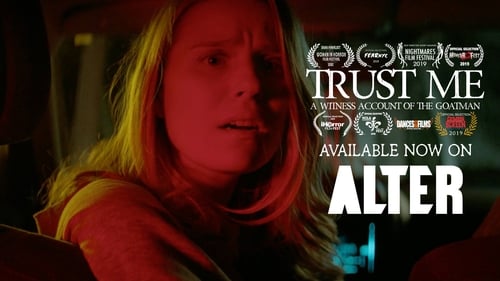
A folk horror movie about a woman who follows her boyfriend into the woods for a romantic surprise only to find something far more sinister. Inspired by thousands of witness accounts documenting the ongoing phenomenon of a certain species of shape-shifting creature in the forests of North America.

ベルゲンのカレンダーにはクリスマスのお祝いがない事を知ったトロールの女王ポピーはブランチの助けを借りて、ブリジットたちにクリスマスの大切さを教えようとします。さぁ、友だちになったトロールたちとベルゲンはクリスマスをお祝いすることができるのでしょうか?
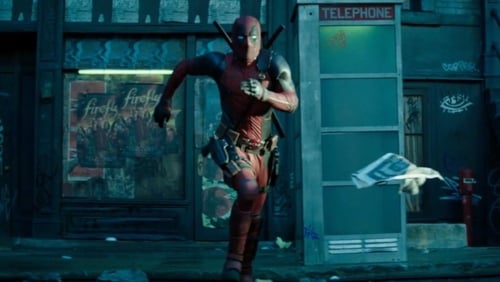
Deadpool sees an opportunity to save the day, but it doesn't go entirely as planned.

A kid begs to stay home while his older sister runs to the store. After she leaves, he wishes he would have gone because he doesn’t feel comfortable being at home in the dark as strange things start to happen...

バイキングの町、ニューバークでは、かつて人間とドラゴンが特別な関係にあり、仲良く暮らしていた。ヒックとトゥースはそれぞれの家族にそのことを伝えようとするが、娘や息子は信じてくれない。そこでヒックはドラゴンを讃える劇を上演することを思いつく…。

A very old woman wants to have dinner with her friends. As they are all dead, the butler has to play the role of every guest.

Margo, Edith, and Agnes spot an ice cream truck. The three of them go after the truck but Agnes falls as she attempts to pedal to the truck. The Minions, seeing her so upset by this, decide to build her a unicorn-themed motorcycle. Agnes goes for a little ride around town.
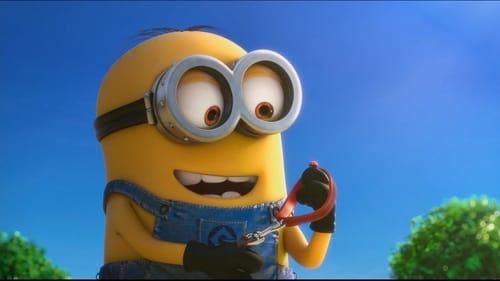
A Minion, seeing many owners walk their dogs, wants a puppy of his own. He tries to leash a ladybug but fails. Luckily, a UFO that sweeps away the ladybug somehow agrees to become a Puppy.

The residents of Hotel Transylvania find their world turned upside-down when youngster Dennis gets a surprise monster-sized pet.
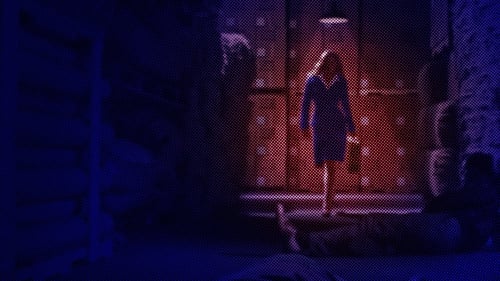
The film takes place one year after the events of Captain America: The First Avenger, in which Agent Carter, a member of the Strategic Scientific Reserve, is in search of the mysterious Zodiac.

Benny and Claire, a down-on-their-luck couple, find a discarded Chitauri weapon referred to as 'Item 47'.
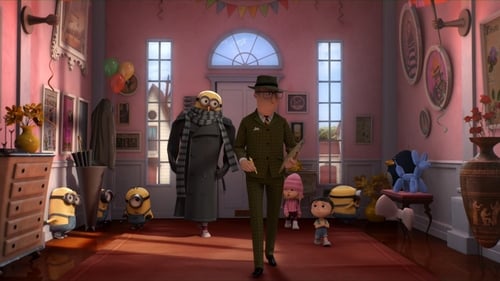
A social worker is coming to Gru's house to check if it's suitable for children. Margo, Edith, Agnes and the Minions must take care of the situation.
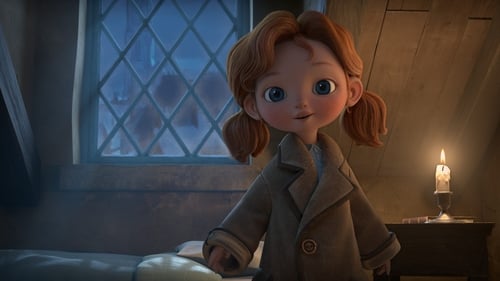
A trip to church with her family on Christmas Eve gives young Angela an extraordinary idea. A heartwarming tale based on a story by Frank McCourt.
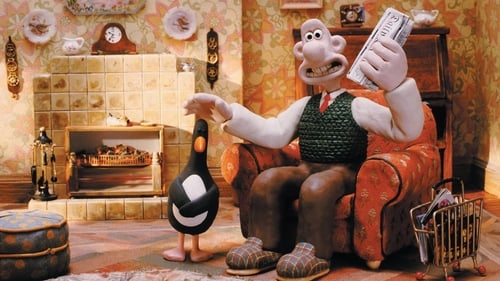
Wallace rents out Gromit's former bedroom to a penguin, who takes up an interest in the techno pants created by Wallace. However, Gromit later learns that the penguin is a wanted criminal.

The U.S. Army Signal Corps Pictorial Division made this short documentary shortly after the end of WWII to look at the after-effects of the atomic bombs dropped on Hiroshima and Nagasaki. There is no credited crew or cast.

Europe 1900 (1968) tells about the history of luxury while problematizing memory and our images of the past.

A film about three of our leading visual artists, Bhupen Khakar, Nalini Malani and Vivan Sundaram. It takes, as its point of departure, a glass mural on which all three were working, then zeros into each of them. It links them to their physical and mental worlds through cinematic devices like associative sounds, variable light and montage. Compositionally, the visuals aim to link with the styles of each artist, as well as the larger narrative traditions of India.

This film was made by the U.S. government during World War II to show its young servicemen the results of "fooling around" with "loose women" overseas. Actual victims of such sexually transmitted diseases as syphilis and gonorrhoea are shown, along with the physical deterioration that accompanies those diseases.

In this CBS News production broadcast on Thanksgiving 1960, Edward R. Murrow points out the plight of migrant farm workers in America. Topics range from the harsh living conditions, endless travel, low wages, and poor opportunities for their children.

The story of a poor girl who leaves her starving family and sheep for a more prosperous village. Her grandfather finds her and tries to convince her to return to her home.

Shooting in 1966 without script, story, or any narrative preconception, Nelson and Wiley created a masterwork of ‘60s independent cinema. The Great Blondino follows an anachronistically attired young fellow as he navigates a beguiling, sometimes troubling world with a curiosity that opens us wide to the filmmakers’ inspired, freeform vision. In many ways, the wonder of Blondino may echo the excitement of invention and exploration that Nelson and Wiley experienced in the making of the film. Utterly exuberant and freed from rote cinematic restriction, it embodies an artistic rigor and direction that also prevents it from ever seeming too unhinged. An incredible feat of tightrope walking. —Mark Toscano

A documentary overview of silent cinema pioneer Edwin S. Porter.

"TESTAMENT is James Broughton's exquisite self-portrait. A major figure in avant-garde filmmaking and poetry since the 1940s, Broughton views his life and life's work with irony, charm, humor, and a combination of joyous self-love and gentle self-depreciation. Scenes from his earlier films mix the elements of humor, magic, slapstick, melodrama, and romance which mark his aesthetic. A plethora of rich personal symbols is woven throughout the film, tied together by verbal games, Zen poems, anecdotes, songs, a child's prayer, dreams, and visions." - Karen Cooper "James Broughton's TESTAMENT is one of the most remarkable films ever produced within the American independent cinema. It is the most moving and most sublimely detached of the recent trend of filmic autobiographies - by Jerome Hill, Jonas Mekas, and Stan Brakhage, to name only the masters, and Broughton's peers." - P. Adams Sitney "A beautiful, important, mysterious work." - Amos Vogel

A leading director of the Czech film renaissance provides a philosophical meditation on life and death, set amidst complex hospital apparatus and the sadness, hope, or resignation of the patients. Existentialist rather than optimist, the approach is one of humanistic atheism, accepting death as part of life. Interviews with doctors and nurses explore their outlook; all speak of death as a fact, without either sentimentality or religiosity. The studied objectivity of the film only imperfectly hides an intense emotionality.

A former inmate of the Auschwitz concentration camp, accused of being a kapo, is serving a life sentence. From the monologue to the camera, we learn the story of an average man destroyed in terrible times.

Taken from Boccaccio's Decameron, this lovely puppet film tells the bawdy story of the beautiful young Venetian lady who confesses her sinful passion for the Archangel Gabriel to a lustful monk, who promptly impersonates him in her bedroom with predictable results. Amidst the film's ribaldry, the hypocrisy and false piety of the monk are mercilessly mocked.
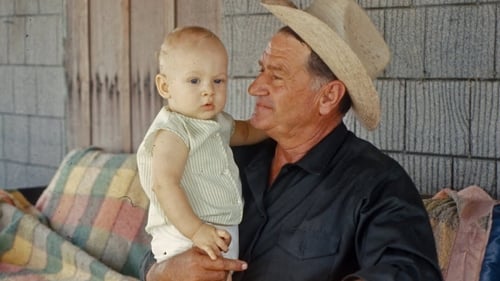
Another short documentary of "Real Food, Roots Music, and People Full of Passion for what they do!", Spend It All is Les Blank's spirited look at the French-speaking Cajun community of southwest Louisiana.

Feature film.

Shot in high-definition video using rear-screen process plates from classic Warner Bros. films noirs. A young man (in color) searches for his past through black-and-white scenes from "The Big Sleep," "Mildred Pierce," and "Strangers on a Train."

Universal Citizen is a multifaceted personal travelogue that brings us to a real Universal Hotel, in Guatemala, and to the same public square in Siena that appears at the beginning of Universal Hotel; at the center of the film are Thompson's off screen meetings with a Libyan Jew and former Dachau inmate who works as a smuggler in Guatemala and refuses to be photographed. (Jonathan Rosenbaum)

A short documentary that explores a blue-collar community’s growing unease with the Vietnam War. It was produced in response to President Nixon’s famous November, 1969 speech when he contrasted the unlawful and vocal anti-war protesters to the respectful “silent majority” who were in favor of remaining in Vietnam to fight communism. This film explores the thoughts and opinions of the “silent majority” represented by the folks living in the Garfield Ridge neighborhood on the southwest side of Chicago.
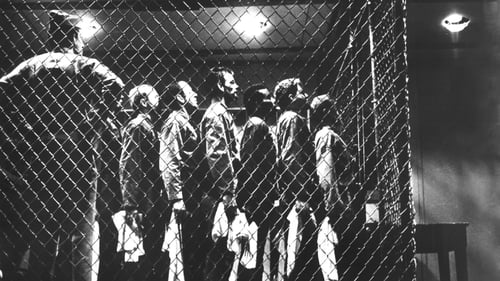
An ultra-realistic depiction of life in a Marine Corps brig (or jail) at a camp in Japan in 1957. Marine prisoners are awakened and put through work details for the course of a single day, submitting in the course of it to extremely harsh and shocking physical and mental degradation and abuse.

A surreal journey of a displaced spirit as he wanders in the interminable darkness through the temporal landscape of a quaint and isolated feudal-era fishing village. Guided by a series of faintly illuminated rooms, the wandering spirit comes upon ancient souls who take on physical forms as they recount their personal stories of daily existence, loss, and tragedy in the peasant community. Intrigued by his initial visit to a curiously distracted elderly woman, the spirit returns to her home in order to ask a fundamental question - "What is happiness?" - an existential query that is innocently answered with innate humility and accepted unknowingness.






















